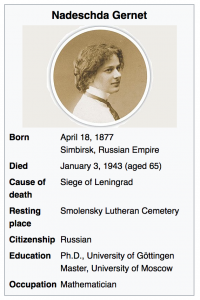Dr. Alexandra Edwards is a 2nd Year Brittain Fellow at Georgia Tech. This is a republishing of her reflection that appeared in Tech Style this last September.
How can we help our students feel that their work in the writing classroom matters? Students struggle to see the point of crafting meticulous assignments when their work ultimately reaches an audience of one. Instead, this summer, I challenged my students to write for an audience of 500 million.
English-language Wikipedia is the fifth most-visited website in the world, averaging 18 billion pageviews per month. It frequently appears on the front page of Google searches. If you ask Siri, Alexa, or Google Home a question, chances are the answer comes from Wikipedia. This global reach, combined with the encyclopedia’s model of open collaboration, makes it a uniquely challenging and rewarding teaching tool. Anyone can contribute to Wikipedia, and those contributions will be seen by an almost unthinkably large audience.
Wiki Education recognizes the pedagogical promise of Wikipedia. They offer teachers robust sets of trainings, assignments, and tools to help integrate Wikipedia editing assignments into classrooms.
I’ve experimented with asking students to edit Wikipedia in the past, but this summer, I decided to build an entire six-week intensive composition course around the project. In our class on “Writing Women Back into STEM History,” students chose a historical woman who worked in a STEM field but was not yet represented by a biography on Wikipedia, and they set out to contribute a complete article about her.

Each of our scaffolded assignments helped students prepare for the daunting task of writing for 500 million potential readers. First, they compiled a collaborative annotated bibliography, full of sources they could mine for information and cite in their eventual articles. As they researched, they made use of Wiki Education’s training modules to learn how to craft and format their contributions to meet Wikipedia’s standards. They peer reviewed each other’s drafts and presented their research orally, sharing in story form all of the fascinating and world-changing projects their women had worked on. Finally, they pushed their drafts “live” on Wikipedia where more experienced editors could expand upon their work.
It was a thrill to see the brand new articles up on the site. As of this writing, 11 of my students’ articles, representing almost 13,000 words and 208 citations, are live on Wikipedia.
In their final reflections for the course, students commented that contributing to Wikipedia helped them think about audience and voice in ways they never had before. “The stakes seemed higher than usual,” one student wrote. “It made [the assignment] feel important and impactful.”
To read more about the articles Dr. Edwards’ students worked on, check out our recent roundup. For more information about our free tools and systems of support for an assignment like this, visit teach.wikiedu.org.

Regarding “English-language Wikipedia is the fifth most-visited website in the world”, this is no longer true, if it ever was. The current ranking for the entire Wikipedia.org domain, which includes 200+ language versions of Wikipedia, is currently ninth, according to Alexa.com – https://www.alexa.com/topsites